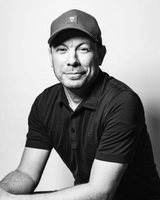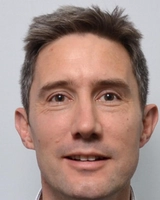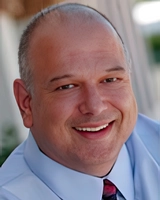To offer you a comprehensive guide on building a strong and effective team, we’ve gathered fifteen strategies from CEOs, directors, and other leaders in the field. From fostering trust via six pillars to communicating directly and acknowledging wins, these insights provide a roadmap to successful team building.
- Foster Trust via the Six Pillars
- Set Clear Expectations and Work-Life Balance
- Cultivate Team Culture
- Prioritize Quality Hires and Fair Compensation
- Provide Constant Feedback
- Offer Individualized Coaching Sessions
- Allow for Autonomy
- Nurture Curiosity in a Diverse Team
- Maintain Relationships Through Regular Check-Ins
- Focus on Complementary Skills
- Encourage Open Communication
- Promote Acceptance of Constructive Criticism
- Define Clear Roles
- Let Team Members Embrace Their Strengths
- Communicate Directly and Acknowledge Wins
Foster Trust via the Six Pillars
Building a strong and effective team involves a strategic approach. Our program, “Leadership Amplified,” emphasizes the Six Pillars: Commitment, Contribution, Authenticity, Enrollment, Connection, and Responsibility, supported by the Power of Direct Honest Feedback.
Our key strategy is fostering an environment of trust and open communication. We teach communication styles and conflict resolution depending on the individual’s operating system. Conflict resolution and style-flexing with communication are key to fostering a team. Everyone gets to be seen and heard. Encouraging team members to commit to their vision, contribute their unique strengths, and connect authentically builds a strong foundation.
By enrolling individuals in the team’s vision, we promote a culture of growth, integrity, and accountability. We foster creating win-win situations with our teams. Embracing honest feedback as a tool for improvement enhances team cohesion, ultimately creating a resilient and high-performing team.

Katia Ravé, Visionary-Transformational Leadership-Leadership Coach-Keynote Speaker-Author, Impact Leaders
Set Clear Expectations and Work-Life Balance
My favourite approach to building a strong team starts from the day they are hired. I tell every team member, “My expectation is that you are honest with your employer, deliver amazing results, and then be wherever you need to be in order to have a happy life.”
This flexibility sets the tone that we deliver and are people of integrity. It also balances that out by acknowledging there is more to life than work. The right hires respond well to this, and it sets a powerful tone for how our team operates together.

Logan Mallory, Vice President of Marketing, Motivosity
Cultivate Team Culture
The process of building a strong and effective team begins with hiring the right people. Focus is placed on finding individuals who possess the technical skills necessary for the job, but equally important are their soft skills and cultural fit. This ensures the team has the right mix of expertise and the ability to collaborate effectively. Attention is also paid to diversity, as diverse teams often bring a wide range of perspectives, leading to innovative solutions and better decision-making.
Once the team is formed, priority is given to cultivating a supportive and open team culture. This involves promoting open communication, where team members feel comfortable sharing ideas, giving and receiving feedback, and discussing challenges. Time is also invested in team-building activities to foster strong relationships and trust among team members.

Piotrek Sosnowski, Chief People and Culture Officer, Natu.Care
Prioritize Quality Hires and Fair Compensation
Building a strong and effective team starts right from the selection stage. The more you streamline your screening processes during recruitment and the better you’re able to compensate, the higher your chances of creating a workforce that drives your business to success.
The importance of quality hires is well known. In order to build a strong and effective team, it is crucial to recruit credible professionals who know their work well, even if they charge a bit more than expected. “Acting your wage” is a common practice among professionals, and it’s understandable, too. Why would you be an excellent team player and go above and beyond for an employer who isn’t ready to pay up for your talent and hard work?

Anjela Mangrum, President, Mangrum Career Solutions
Provide Constant Feedback
From an HR perspective, one aspect that I have found to be extremely effective in building a strong team is providing constant feedback. Many may think that this may actually be a waste of time, but we have found it to be useful and have helped our employees stay on track.
We conduct monthly one-on-one catch-up sessions with each employee as well as monthly team meetings where we give updates on company matters. For the individual meetings, we sometimes conduct them with a line manager to assess the employee’s growth and bring attention to any issues we see in their work and how we can help bring their performance back up to appropriate levels. This is also a great opportunity for the employee to bring up any situation with which they may be having difficulties.
All in all, from the feedback we have received, our employees have told us that they appreciate the meetings as they make them feel valued and that their growth is important to the company.

Ben Richardson, Director, Acuity Training
Offer Individualized Coaching Sessions
To build a strong and effective team, it is essential to offer weekly, individualized coaching sessions. When performed correctly, coaching will not only provide support to your team but will also reveal details that will help you a) determine if the team member is exhibiting growth and development within their current role, and b) highlight their strengths and weaknesses. This enables you to make informed decisions on project and task delegation, restructuring needs, and a more accurate prediction of results.
Coaching sessions should follow a structure to be effective. Start by asking each team member how they feel about their role and performance. If you need to address other concerns or topics, wait until after discussing the topics they voiced. Additionally, asking team members for their ideas for a solution (whether or not you accept the idea) not only instills trust but also increases confidence and results in a more effective outcome.

Elizabeth Zuponcic, Marketing and Operations Solutions Specialist
Allow for Autonomy
My strategy for building a strong and effective team starts with trust, unconditionally. Trust enables people to be themselves and creates autonomy, which is really important in any team. If you do not trust the leader, or what you are saying, they will not trust each other either. So, how can you do your best work, and be motivated, or engaged without it?
This is not easy to create and can disappear quickly, but it starts with you as a leader walking the walk and talking the talk. Do not micromanage; give advice and guidance but also enable people to challenge themselves and others. The best teams I have worked in, or that I have created at Let’s Talk Talent, are built on this foundation of trust first.

Jo Taylor, Managing Director, Let’s Talk Talent
Nurture Curiosity in a Diverse Team
Nurturing curiosity, our team consists of employees from different generations, and I use curiosity as a glue for them. Six months ago, we had a situation when a Boomer employee showed interest in understanding blockchain technology. A Gen Z colleague, passionate about crypto, took the initiative to explain its intricacies.
Together, they brainstormed how MaxCash could potentially utilize blockchain for more transparent loan processes. We didn’t proceed with this idea, but even brainstorming an innovative project improved the enthusiasm and level of communication in our team. And I strongly believe that this is the key to building effective teams.

Fred Winchar, Founder, Certified HR Professional, MaxCash
Maintain Relationships Through Regular Check-Ins
My team is composed solely of independent contractors at the moment, but I have implemented more check-ins with my team to ensure they still enjoy the work they were hired for. Just as I tend to change my mind about the direction of the business, my team does as well.
Doing this has helped maintain our relationship, brought longevity to their roles, and taught me the importance of documenting enough processes. This way, I can cross-train in certain areas and continue to work with the people I trust.

Adriana Richardson, Owner and CEO, The Lazy Millennial
Focus on Complementary Skills
Building a robust and efficient team requires a well-structured approach. One of the most impactful strategies is to focus on complementary skill sets. Ensure that team members possess diverse abilities that align with the project’s requirements, creating a balanced and collaborative environment. This mix of expertise allows individuals to learn from one another, promoting professional growth and innovative problem-solving.
When setting up a new team, clearly define roles and responsibilities to avoid overlaps and conflicts. This sets the foundation for a cohesive workflow. Always encourage open communication and respect for each other’s contributions to enhance teamwork.
Regular team assessments help identify strengths and areas for improvement, enabling targeted training and skill development. By assembling a team with complementary skills, you create a dynamic group that amplifies performance and drives success across a range of projects and challenges.

Trey Ferro, CEO, Spot Pet Insurance
Encourage Open Communication
Encourage open communication, and you’ll see the difference. I always prioritize creating an environment where everyone feels comfortable to share their ideas and concerns. Trust me, this strategy works wonders.
For instance, in my previous role, we had a project that was falling behind. Instead of pointing fingers, we held an open discussion. Everyone got to voice their thoughts and, more importantly, felt heard. This helped us not only identify bottlenecks but also boosted team morale.

David Rubie-Todd, Co-Founder and Marketing Head, Sticker It
Promote Acceptance of Constructive Criticism
Train employees to learn how to accept constructive criticism. The best way to build a strong and effective team is to strengthen communication within the team. You have to train every member how to properly deliver and accept constructive criticism and treat it as motivation to further improve.
This can be done by conducting team-building activities, coupled with communication seminars, to help members become more familiar with each other and to practice more open communication. Team activities such as lunch outs, team dinners, or any other social activities can also help. Most importantly, allow members to speak their minds during meetings so they can practice their delivery and acceptance of criticism.

Omer Lewinsohn, General Manager, Marketing Expert, Management.org
Define Clear Roles
Building a strong and effective team primarily depends on defining the roles and responsibilities of various team members. Two strategies play a key role in this process.
First, analyze and judge the skills and capabilities of your employees. When you clearly understand the strengths and weaknesses of your team members, you can plan your tasks accordingly. Furthermore, when employees work on their strong points, they perform better and work with confidence.
Second, ensure that your employees are working on the roles and responsibilities for which they were hired. You cannot force individuals to work in areas they are not interested in. To solve this problem, a pre-hire meeting is encouraged so that only suitable candidates are hired.
These two strategies have helped build an effective and strong team capable of working together and completing projects on time.

Sandeep Kashyap, CEO and Founder, ProofHub
Let Team Members Embrace Their Strengths
My best strategy for fostering a strong, effective team is to encourage everyone to embrace their strengths. A great way of doing this is by allowing the team to draft roles and responsibilities themselves.
This common approach allows everyone on the team to take ownership of their own tasks, which then promotes individual success within the collective and leads to greater overall productivity. It also helps people learn about each other’s talents, as well as develop trust and respect with one another—essential ingredients in any successful team dynamic.

Michael Alexis, CEO, Virtual Team Building
Communicate Directly and Acknowledge Wins
There is no substitute for direct and honest communication from the team leader. I make it a point to talk to everyone individually and collectively to get updates, give feedback, and understand challenges.
Remember, communication is a two-way street, and you need to make your team members comfortable in approaching you with issues and ideas. A related strategy is recognizing wins, no matter how big or small. In my experience, acknowledging them timely and publicly acts as a big morale booster for the team.

Will Baker, Director, Skirtings R Us
